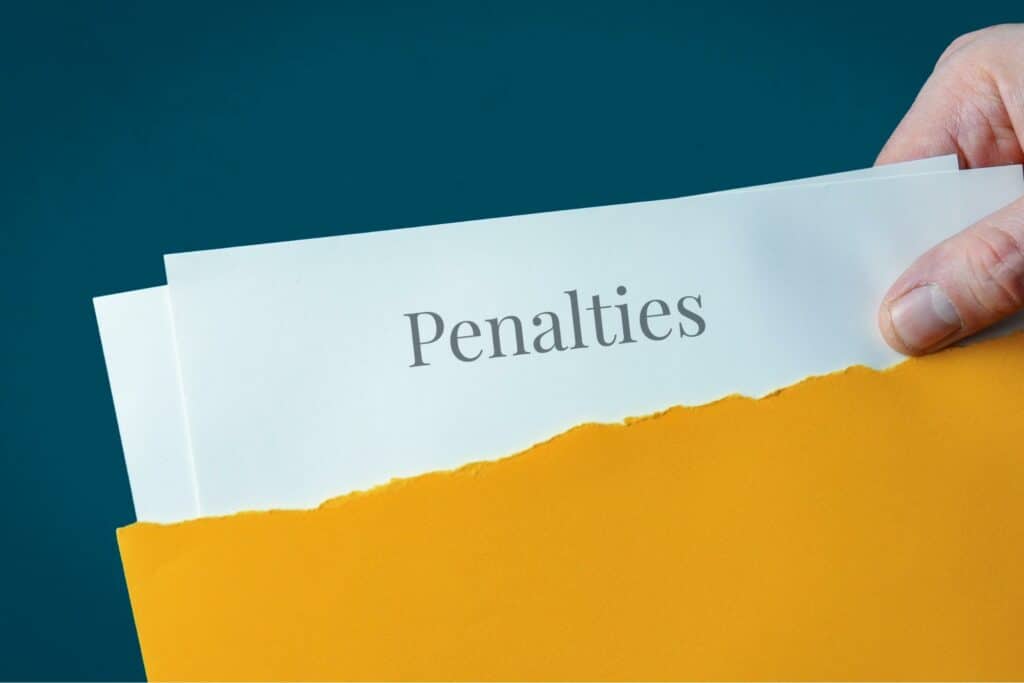In this final instalment of our three-part series delving into the various facets of the franchise system within the Australian shed industry (the ‘good’, the ‘bad’, and ‘the ugly’), we take a look at what happens when things truly turn ugly.
If you missed part one or two of this series, you can find them here:
Disclaimer: on a legal note, we’d like to make it clear that not all franchises are created equal, and so the issues covered in this series don’t necessarily apply to all shed franchise agreements in Australia, and not all shed franchisors fight ugly. Sadly, these issues do happen a lot, so we feel it’s important to cover what can happen in franchise situations where things do get ugly.
But first, let’s recap the bad — it lays the groundwork for things to go truly south
In Part two of this three-part instalment of the many sides of franchises in the Australian shed industry, we covered ‘the bad’. We covered negatives that are a part of many Australian shed franchises, like:
- The risks you take on personally if the franchise crumbles.
- The ways that the franchise agreements are tailored to protect the rights of the franchisor but not the franchisee.
- The many restrictions — geographical trading restrictions, marketing restrictions, supplier and margin restrictions.
- Product inflexibility and the inability to meet your customers needs, even if you want to, in many cases.
- The inability to control leads in many franchise set ups.
- The KPIs you need to meet in order to not lose your franchise rights.
- And the long-term contracts that lock you in for years, twisting your arm to stay when you’re not happy — yet that expire eventually, with no guarantee of continuation if you do want to continue.
But unfortunately, these factors aren’t even the worst things that happen to many franchisees in the shed industry in Australia. These things aren’t talked about much, but we feel it’s important to keep our readers aware; here is what you need to know about when things turn ugly.

When things turn south in shed franchising. The Ugly.
The ugly things that can happen after joining a franchised network to sell sheds are threefold:
- What happens during: limiting what you can earn during the term, and the work you do for others’ benefit.
- What happens when you want to leave: making it difficult for you to ‘get out’.
- What happens after you leave: attempting to stop you from earning a living in the same territory afterwards.
The ugly when you are still in a shed franchise term
Work you do for others’ benefit
Any marketing efforts you invest in will benefit the franchisor’s brand, not your own
Imagine this scenario; you sign up for a franchise. You spend 5 years pouring your heart and soul into the business. You build up a solid customer base, a great local reputation, you invest in marketing and advertising. But what do you get after that effort? Trading under someone else’s name, the franchise, and using their own branding and messaging, your marketing efforts aren’t for you. They’re for the franchise chain itself.
You cannot benefit from the goodwill you have built in your franchisors brand. By definition, the franchisor’s brand is the franchisor. And it’s associated with the franchisor, and the name and chain overall. The customer doesn’t necessarily realise or care that you are your own individual business within the larger brand. They associate their experience with the name they’re presented, that of the franchise brand itself, not the local franchisee who currently holds trading rights within that store.
Limiting what you can earn during the term
Supplier restrictions during the franchise term
During the term as a franchisee, you are typically bound by the terms and conditions of the franchise agreement, which may include requirements to purchase certain products or services exclusively from the franchisor or its approved suppliers.
They can make this restriction part of your franchise agreement and try to hold you to it, even if the product is similar or almost identical to the product they want you to purchase.
This isn’t ideal for your profits for a few reasons;
- You can’t use any goodwill you’ve built with other suppliers.
- You’re locked into the same suppliers and same prices — you can’t shop around.
- You may have to pay a higher price because they know you have no other options.
- The franchisor likely makes a cut from your purchases, and the supplier benefits. It’s in neither of their interests to make sure that you get a good deal.
- You can’t differentiate yourself from others. Same price. Same product. Same materials.
- You can’t reduce your costs to increase your profit margins by finding a better-priced supplier.
Is this even allowed?
Franchising Code of Conduct rules
However, the Franchising Code of Conduct requires franchisors to act in good faith in their dealings with franchisees and not impose unfair or unreasonable restrictions on their ability to operate their businesses.
Under certain circumstances, it may be permissible for a franchisee to purchase similar products or services from another supplier, even if the franchise agreement requires them to purchase from the franchisor or its approved suppliers.
For example:
- If the franchisor is unable or unwilling to supply the required products or services, the franchisee may need to purchase from another supplier to fulfil customer orders.
- If the franchisor’s prices or terms of supply are unreasonably high or unfavourable, the franchisee may seek to purchase from a more cost-effective or flexible supplier.
- If the franchisee discovers a better or more innovative product or service that is not offered by the franchisor or its approved suppliers, they may seek to purchase from that supplier.

Of course, it’s important to review carefully the franchise agreement, and any permissible cases mentioned within it before going ahead and doing so, to avoid trouble. It’s also probably a good idea to seek professional legal advice.
What about in terms of the law, are supplier restrictions enforceable?
Disclaimer: this is not intended as legal advice, but rather general information from shed industry experts. If you’re seeking legal advice, do seek professional legal guidance from a lawyer.
In general, a franchise agreement may include provisions that restrict the franchisee from buying similar products ot services from an alternate supplier. This type of provision is commonly known as a “no-poaching” clause or a “sole source” clause, and it is intended to protect the franchisor’s supply chain and maintain consistency in the products or services offered by the franchise system.
However, the enforceability of a no-poaching or sole source clause may depend on several factors, including the reasonableness of the clause, the specific language used in the clause, and the impact of the clause on competition and consumer welfare.
Under Australian law, for example, no-poaching or sole source clauses may be considered anti-competitive and unenforceable if they are likely to substantially lessen competition.
So the franchisors have to ensure that any restrictions on a franchisee’s ability to purchase similar products or services from alternate suppliers are reasonable and necessary to protect the franchisor’s legitimate business interests.
What this means for you, the franchisee (or potential franchisee) is that while your franchise agreement may put a restriction in place, if it doesn’t meet the conditions of protecting the franchisor’s legitimate interests, and if it prevents you from making money or makes it unreasonably hard to do so, it may not stand up in court.
Our advice? It’s to seek legal advice. A legal professional will be able to point you in the right direction, after reviewing the specific franchise agreement.
If you haven’t yet signed a franchise agreement but are considering one, our advice is to think very carefully before doing so: there are many limitations that may sound fine, but that could restrict you from making as much profit as you could from your shed businesss

Other ways your earnings can be restricted during a franchise term
While the above examples are some of the ways that your franchisee earnings can be capped during a franchise term, there are other ways that your earnings can be effectively restricted during a franchise term.
For example, the following factors can have a definite impact on your earnings and profits:
- Geographical restrictions in who you can advertise to, or sell to.
- Leads are often controlled by the franchisor, and distributed how they see fit.
- Many franchisors control the profit margins you’re able to set.
- Some franchisors control the pricing of your products — how much you can sell the sheds for.
- Inflexible rules that prevent you from standing out in the market — if you sell the same products, for the same price, using the same materials, under the same name, what is it that sets you apart from others?
Keep in mind, while some of the restrictions may or may not stand up in court, if you ‘fall out’ with the franchisor, you may not have long in the franchise
It’s important to keep in mind that you are not guaranteed a term extension once your franchise term ends. So unfortunately, while some of the restrictions and rules may be unfair, contesting them could likely put you offside with the franchisor. And when you fall out with the franchisor, you’re not guaranteed to be offered another franchise term when your current one ends. While this is a good thing if you don’t want to be restricted by the franchise system anyway, it also means that you need to leave the franchise that you may have spent years pouring your heart and soul into.
This is another reason that, if you have the choice, setting out as an independent shed retailer from the beginning is a good option if you haven’t yet signed a franchise agreement: your hard work, goodwill, and marketing efforts go towards your name, not someone else’s. And you’re not as likely to be kicked out of your own business.
The ugly things that can happen when you want to leave a shed franchise
There are other considerations about buying into a franchise that needs to be taken into account, in terms of the process of leaving the franchise and moving on.
It can be hard to ‘get out’
You might have to pay an exit fee or another penalty
Many shed franchises in Australia have long-term contracts. They can penalise you for leaving the franchise before that set period is up. It’s important to consider very carefully how long you’re committing to, before you sign the franchise agreement. It’s more important to consider what happens if you want ‘out’ before that time is waited out.
Many franchise agreements involve an exit fee. This could be applicable whether you wait out the terms of the franchise agreement or not. If you’re leaving the franchise because the business isn’t doing well, an exit fee can cause further financial difficulty. Be sure to properly review any applicable exit fees before signing a franchise agreement.
You can’t necessarily choose who you sell to
In most franchise agreements, the franchisor controls who you are allowed to sell your franchise to, should you decide to leave. This adds another difficulty to the exit process. You can’t always just find a buyer and then sell it to them. The franchisor can retain a lot of control during this part of the process.

The ugly things that can happen after you leave a shed franchise
Attempting to stop you from earning a living in the same territory
As we mentioned in part one of this series, it’s so important to ensure that you read a franchise agreement fully and think through the clauses carefully, before signing up.
Attempts via selling restrictions
Many will try to stop you from selling sheds in the same territory after you leave the franchise for a set amount of time. There are a few different ways they can attempt to do this.
The most common way is by adding clauses to your franchise agreement that dictate what you’re allowed to do, even after the franchise agreement term has ended.
There are clauses that a franchisor may add to a franchise agreement that attempt to restrict you from earning a living in the same territory after your franchise terms end.
In a franchise agreement they are known as restrictive clauses or non-compete clauses. These may include:
- Non-compete clauses: These clauses prevent the ex-franchisee from competing with the franchisor or opening a similar business in the same territory for a certain period of time.
- Non-solicitation clauses: These clauses prevent the ex-franchisee from soliciting or doing business with the franchisor’s customers or suppliers (supplier trading restrictions) for a certain period of time.
- Confidentiality clauses: These clauses prevent the ex-franchisee from disclosing confidential information about the franchisor’s business practices, trade secrets, or intellectual property to third parties.
- Territorial restrictions: These clauses restrict the ex-franchisee from operating a similar business in the same geographical area or territory where the franchisor operates or has exclusive rights.
If these restrictions are successful in preventing you from earning a living in the same territory, it means a few backwards steps for you:
- You lose your customer base and potential customer base you created from great customer service, hard work, word of mouth and great reputation.
- It also means, if your shed franchise was based in your local area, that you’re prevented from earning a living in sheds in your local area for a set amount of time.
- The non-solicitation clauses for customers mean that you can’t keep the customers you’ve built up.
- The non-solicitation clauses for suppliers mean that you can’t trade with the suppliers you’ve been working with for the past months and years. Depending on the suppliers they have (and restrict you from), this could significantly impact your ability to do business in sheds, or get the best deals. It can mean you have to start from scratch to build up good relationships with new suppliers.
These restrictions overall are usually referred to as ‘non-compete’ clauses or ‘restrictive clauses’.

The good news: these restrictive clauses don’t always hold up in court
Of course, some of these clauses may be enforceable, but others might not stand up in a court, and could be deemed unfair, unreasonable, or actually illegal under Australian consumer law; particularly if they unfairly restrict the ex-franchisee’s ability to earn a living or operate a business.
General information on the legalities
Disclaimer: the following is general information on the legalities of restrictive clauses and non-compete clauses. However, this is not intended as legal advice: we recommend you seek legal advice from a legal professional for information and advice on the legalities and legal ramifications for your exact agreement and situation.
Despite what the shed franchisor may want franchisees to think, there is no guarantee that a non-compete clause will be enforced by a court in Australia. In some cases, courts have found non-compete clauses to be too restrictive and have refused to enforce them. It’s assessed on a case-by-case basis when brought to the courts. So, seek legal advice.
But of course, the franchisor wants you to think you’re backed into a corner, when a franchise agreement holds non-compete clauses. You may be, but you may not be.
In general, under Australian law, non-compete clauses and other post-termination restraints on trade are generally enforceable only to the extent that they are reasonable and necessary to protect the legitimate business interests of the franchisor.
If a court finds that a restraint is unreasonable or goes beyond what is necessary to protect the franchisor’s legitimate business interests, it may be deemed unenforceable. The court may also consider whether the restraint unfairly restricts the ex-franchisee’s ability to earn a living or operate a business.
What do the courts consider when determining if a clause is ‘unreasonable’?
In Australia, there are several laws and regulations that protect franchisees’ rights and prevent franchisors from imposing unfair or unconscionable contract terms.
The Franchising Code of Conduct, for instance, sets out certain minimum standards of conduct for franchisors and franchisees, including good faith dealings, disclosure requirements, and dispute resolution procedures.
In terms of the legalities, for the franchisee, the good news is that the enforceability of such clauses in Australia can depend on several factors, including:
- The specific wording of the clause.
- The nature of the franchise system.
- The circumstances surrounding the termination of the franchise agreement.
- The nature and extent of the restraint.
- The duration of the restriction or restraint.
- The duration of the franchise agreement.
- The franchisee’s investment in the business.
- The geographic scope of the restriction or restraint.
- Whether the clause unfairly restricts the ex-franchisee’s ability to earn money.
- Whether the clause protects a legitimate business interest or trade secret of the franchisor.
- The interests of both parties.
Courts in Australia assess the reasonableness of a non-compete clause on a case-by-case basis, considering the specific factors of the individual case and restrictions.
In general, non-compete clauses are more likely to be enforceable if they are reasonable in scope, duration, and geographic extent. The clause must also protect a legitimate business interest of the franchisor, such as trade secrets or confidential information, and not be intended solely to prevent competition.
What is often considered ‘unreasonable’ by the courts
In Australia, if a non-compete clause in a franchise agreement is intended solely to prevent competition (which is generally the case in shed retailing) and does not protect any legitimate business interest of the franchisor, it is more likely to be considered unreasonable and unenforceable by a court.
Non-compete clauses that are too broad in scope or duration, or which unreasonably restrict the franchisee’s ability to earn a living, are less likely to be upheld by the courts.
Examples of cases in Australia
There have been a number of cases in Australia that have dealt with the enforceability of non-compete clauses in franchise agreements, where the sole purpose of the clause was to prevent the franchisee from competing in the territory after the end of the franchise agreement.
Non-compete court cases won in favour of the franchisee
Here are some examples of some court cases that were won in favour of the franchisees:
Bakers Delight Holdings Ltd v Cudek [2004] VSC 180
- The franchisor, Bakers Delight, sought an injunction to prevent a former franchisee from operating a similar business in the same territory after the end of the franchise agreement.
- The non-compete clause in the franchise agreement prohibited the franchisee from carrying on a similar business within a 10-kilometre radius of the franchised business for a period of 12 months after the end of the agreement.
- The court found that the non-compete clause was unreasonable and unenforceable because it prevented the franchisee from earning a living in the same industry and geographical area.
- The court also noted that the franchisor did not have a legitimate business interest to protect, as there were no trade secrets or confidential information at stake.
Jim's Group Pty Ltd v Tan [2018] VSC 201.
- The franchisor, Jim’s Group, sought an injunction to prevent a former franchisee from operating a similar business in the same territory after the end of the franchise agreement.
- The non-compete clause in the franchise agreement prohibited the franchisee from carrying on a similar business within a 10-kilometre radius of the franchised business for a period of 2 years after the end of the agreement.
- The court found that the non-compete clause was unreasonable and unenforceable, as it prevented the franchisee from earning a living in the same industry and geographical area, and there was no legitimate business interest to protect.
Bumper's Drive-In Pty Ltd v Zarro [2009] NSWSC 307
- The franchisor, Bumper’s Drive-In, sought an injunction to prevent a former franchisee from operating a similar business in the same territory after the end of the franchise agreement.
- The non-compete clause in the franchise agreement prohibited the franchisee from carrying on a similar business within a 3-kilometre radius of the franchised business for a period of 12 months after the end of the agreement.
- The court found that the non-compete clause was unreasonable and unenforceable, as it prevented the franchisee from earning a living in the same industry and geographical area, and there was no legitimate business interest to protect.

Other cases with similar details
The following cases, when you look them up, had similar details and similar findings for similar reasons to the examples above.
- Battery World Australia Pty Ltd v Batteryology Pty Ltd [2018] FCAFC 135.
- Pizza Haven Pty Ltd v Lafferty [2002] FCA 1188.
- Ultra Tune Australia Pty Ltd v Goldfarb [2020] FCAFC 33
- Red Rooster Foods Pty Ltd v Benson & Ors [2011] VSCA 239
- Pack & Send Systems Pty Ltd v Ferrier [2006] FCA 934
- Domino’s Pizza Enterprises Limited v Precision Retail Pty Ltd [2007] FCA 1575
- Bakers Delight Holdings Ltd v Trinh [2003] VSC 34
- Carpet Call Franchising Pty Ltd v Chan [2012] NSWSC 417
These cases demonstrate that the enforceability of non-compete clauses in franchise agreements depends on the specific circumstances of each case and the reasonableness of the clause and whether there is a legitimate business interest to protect. Of course, there are many more examples.
Remember to seek legal advice before entering into a franchise agreement
It is always recommended that potential franchisees seek legal advice and carefully review the franchise agreement, including any non-compete clauses, before entering into a franchise agreement in Australia. We can’t stress this enough.
Our advice as shed experts?
Our advice is, don’t sign anything that has a non-compete agreement on it in the first place.
Our experience is that you’ll come to regret it; whether it’s the stress of determining the enforceability of the clause, the uncertainty of how you’ll be able to earn your living when you do choose to leave (and if a non-compete would stand up in court), the fear of trading in case it is enforceable, or the hassle and fight involved in proving your right to earn a living if they decide to take the matter to court.
Even if you think it likely won’t stand up, the kinds of terms in a franchise agreement is usually an indicator of how a franchisor treats its franchisees, and how reasonable they are.
Our advice is that you’re far better off starting an independent shed business in the first place, outside of a franchise system. If you want support and advice from an expert, look for someone who helps support independent shed businesses to get started.
Want to talk to an expert? Get in touch.
Never go into a franchise agreement contract without knowing what it all means
It’s important to carefully review, consider, and negotiate the terms of a franchise agreement before signing it. It’s also important to get legal advice before entering into a franchise agreement.
Our advice, again, is that it would be much easier to go into business on your own, as an independent shed retailer, in our opinion. There is still support out there to draw on for independent retailers.
Times are changing
Times have changed from what they were many years ago in the industry. These days you no longer need to be part of a franchise to retail sheds.
So you no longer have to enter into franchise agreements, and you no longer have to agree to terms that don’t take your best interest into account.
Independent retail doesn’t mean going it alone
Choosing to become an independent trader doesn’t mean you have to ‘go it alone’.
There are companies out there that provide world class shed design software, without requiring you to sign up for a long-term contract, with many such clauses.
You can choose a shed design software provider that has award-winning products, alignments to national manufacturers, and who can provide ready-made shed websites, all for the price of your monthly coffee spend. With no territorial boundaries, and no franchising agreements to sign up to. All you have to do is look around, and consider your options.
Because, unfortunately, in the Australian shed industry, the franchise system has some good, but unfortunately, a whole lot of bad and ugly.

